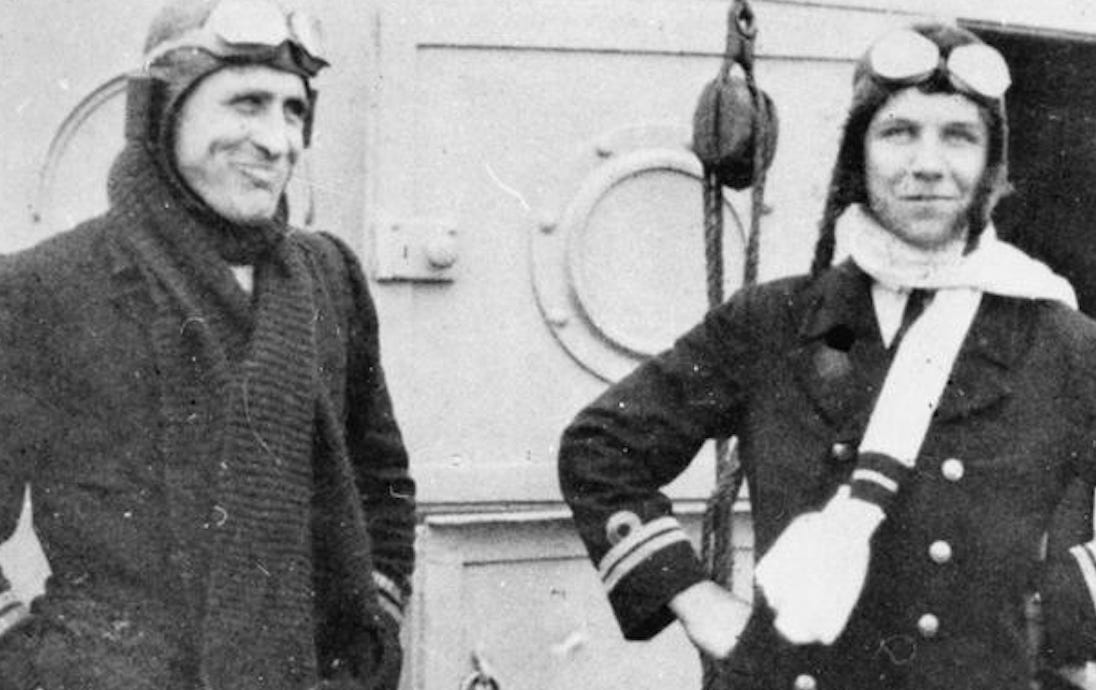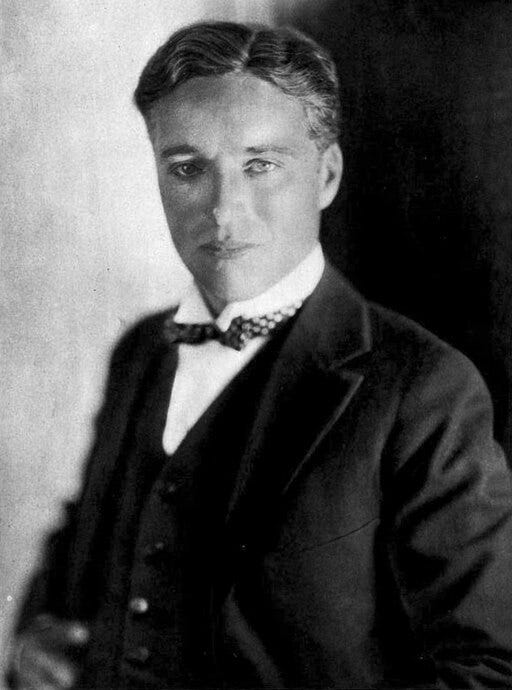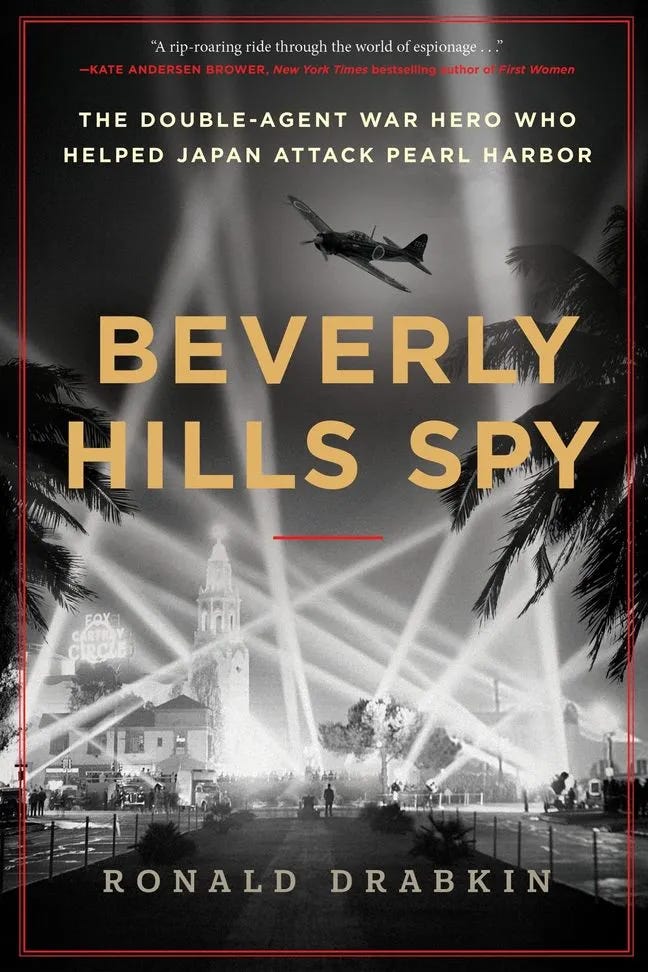Welcome back to SOURCE NOTES, which isn’t going anywhere even though I’ve neglected to keep up with it lately. FYI to all of my more-recent-than-January subscribers: SOURCE NOTES is a fun, breezy interview feature in which I gab with top narrative history authors about how their books came together—the conception, the research process, etc. etc. Today I bring you Ronald Drabkin—subscribe to his Substack here—debut author of BEVERLY HILLS SPY: The Double-Agent War Hero Who Helped Japan Attack Pearl Harbor. We share a book editor in the incomparable Mauro DiPreta at William Morrow, which is how I knew BHS would be a page-turner even before a copy arrived on my doorstep last month. But don’t take my word for it. Here’s Ron…
Give me a thirty-second summary of BEVERLY HILLS SPY.
The book is about a British World War I hero, a fighter pilot—who was one of the most famous World War I aviators, the first guy who flew an airplane off a ship in a battle—and how he turned into a Japanese spy in the golden age of Hollywood, helping the Japanese Navy with their upcoming attack on Pearl Harbor.
Your professional background isn’t in writing or research. Did you always want to write a book, or… ?
I'm like your standard Silicon Valley tech nerd. I worked at Intel, started a couple of companies, some of them did OK. You haven't heard of any of them. I kind of dropped into historical research by coincidence about five or six years ago when my dad passed away.
The book was originally going to be about your father and your grandfather and their history with espionage.
Yeah. Usually, with someone who's looking into their family background, they don't end up writing about something completely different. But I found just such a really interesting story that hadn't seen the light of day.
Was it only five or six years ago that you began to learn what your dad and grandfather did for a living?
I kind of knew about it. My dad, especially when he was getting older, he definitely let some things slip. He never talked about the actual missions, but he would tell funny stories about following people through San Francisco, through the Red Light District, that kind of thing.
This was for FBI?
It is currently under the FBI. At that time it was under the Army Counterintelligence Corps.
And your grandfather as well?
I believe so, yeah. It's even more mysterious.
So you started looking into your family history, and that's when you stumbled upon your main character, Frederick Rutland.
I was trying to figure out what my grandpa was doing back in the thirties, and since I wasn't getting too far, I started filing FOIA requests with the FBI, involving other people I found his name connected to, and just seeing what came back. I filed the one for Frederick Rutland, and it had just been declassified. When you file a request with the FBI, usually they'll come back with, Hey, we have something, or we don't. What they don't usually say is, like, Hey, we just declassified something hot over here!
When was this?
About 2020
And it had just been declassified, like, months earlier?
A couple years earlier.
So that set your radar off.
Yeah. I got his file and opened it up, and one of the first things I found was, this guy wasn't just a Japanese spy—he was a double agent working for the Navy, and the FBI was mad at the Navy. And I'm like, well that's hot.
Aside from the declassified file, there wasn’t much about Frederick Rutland in the public record?
There wasn't that much.
Tell me about the research that went into piecing his story together.
The FBI stuff is fairly standard—you just file FOIAs. Then there was finding old books in the National Archives, along with a large file from Kew in the U.K. National Archives. The newspapers have come online just in the last year and a half. So with Frederick Rutland, there were rumors of, like, oh, he and Charlie Chaplin and Boris Karloff were buddies. And if you look at the old L.A. Examiner records from the thirties, there it is—a party that he's actually planning where Chaplin and Karloff are attending, along with a couple of other British actors, and the U.S. Navy head of the Pacific Fleet and his guys are there. So the story was like, he was getting these guys all drunk together and getting U.S. Navy secrets. And here's actual documentation for it.
Incredible.
The final pillar [of the research], and the most unusual is, I live in Japan and I speak Japanese. I went to school in Japan in the old days, and I've become friends with a couple buddies from the Japanese naval Self-Defense Forces. And these guys have in their houses, like, old Japanese Navy memoirs from World War II, piled up to the ceiling. The Japanese Navy guys, at the end of World War II, they burned their intelligence records. They realized the Americans were coming over, that they were going to be occupied, and they were probably going to be put on trial, which was correct. But it also turned out that a lot of those Japanese admirals had written memoirs back in the fifties.
And these were literally just sitting there in your friends’ apartments?
Literally in their apartments.
So if you didn’t happen to be friends with these guys, you wouldn't have found that stuff otherwise.
Yeah, a regular researcher would never have found it.
Were those the most esoteric sources you ended up working with?
I would say so. I'll give you an example. The U.S. records say that Frederick Rutland went over to Japan in the 1920s and helped Mitsubishi. And you read the Japanese accounts of the same thing, and it says, Oh, we tricked the British. We told them he was going to work for Mitsubishi, but he was working directly for us, and we put him up in a luxury villa away from the other foreigners. And we visited his house at least once a week in plain clothes so the British would never notice. So you're really getting the full story.
What other revelations did you unearth?
The biggest revelation was that Frederick Rutland, who had been a Japanese spy or assistant for twenty years, did have a change of heart. He turned into a double agent working for the U.S. Navy, and then the FBI had him silenced. They didn't believe him, but he was actually coming out and saying, Look, the Japanese are going to attack. I know how these guys work. I've known these guys for twenty years. I've been to their houses, and I'm not going to know every detail of their future attack on the U.S., but I'm going to know very, very close. And the FBI said, Get this guy out of here. We can't trust him. That's in the declassified FBI files.
Do you know if anyone else accessed those before you? Like, members of the public?
Nothing was ever published that I saw.
What about things you wanted but couldn't get your hands on?
The FBI files are only, like, two-thirds there, and the other third is redacted. What the heck's in that one third? I suspect a lot of it would be around the movie stars. Charlie Chaplin plays a really big role in the story.
I was thinking more, like, whole sets of files that you know exist, or existed, but that you couldn’t track down.
I’ll give you an example of one I think I actually will get my hands on. So, the files mention a house of ill repute in Tijuana called Molina Rojo. If you read the stuff of the day, it's like, that's where the Japanese and the Nazis and the Italian fascists were hanging out. I found the file on the guy who ran that house of ill repute, three years ago. They told me they put it in the fastest de-classification queue.
Who’s they?
The National Archives. And so it's coming, I dunno, in a year? Maybe?
In time for the paperback?
Probably not.
I understand you had some prickly encounters with academics who specialize in this subject matter.
It's funny, a couple of them were just so helpful and fantastic. Others, they were kind of petty. I'd be happy if they ignored me or were like, Look, kid, I'm a little busy right now. That would be a totally fine answer. But what's hilarious is when they get personally insulting and write a six page diatribe.
What was the worst thing one of them said to you?
Don't even mention my name in your book. I would never want to be associated with anything you're doing.
Was that person helpful nonetheless?
Yeah! It was hilarious, because I was doing fact checking with him—the reason you contact a professor is because you don't know everything—and he came back with a six-page red-line on exactly what I needed to update, which was great.
Joke’s on him! Last thing I want to know is if BEVERLY HILLS SPY was a one-off, or if you plan to do another book.
Yeah. I found more stuff with a U.S./Japan angle, so I'm definitely thinking about something.









We know from hindsight that his change of heart must have been real, because the Japanese DID attack. At the same time, I don't blame the FBI for distrusting him, though. He had a history. I'll be adding this book to my reading list. Thank you!
Great story and great interview – would be interesting to know what the guy was doing in Hollywood, but I guess I'll have to read the book! Thanks!